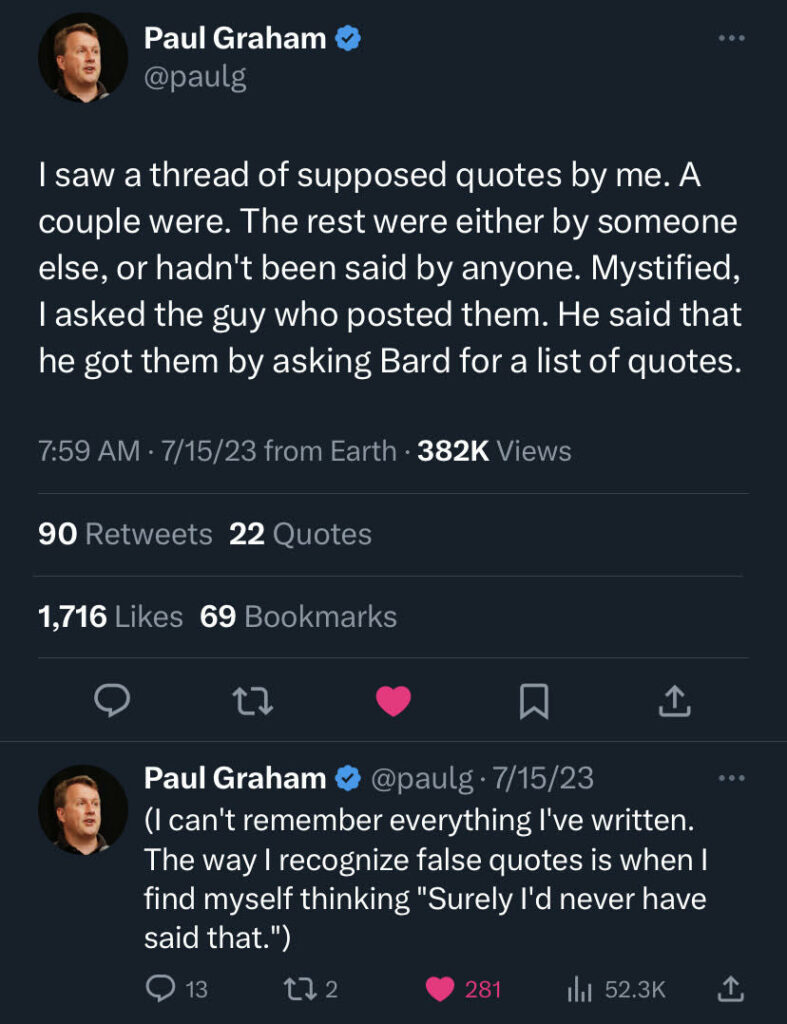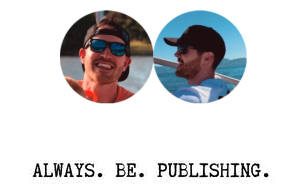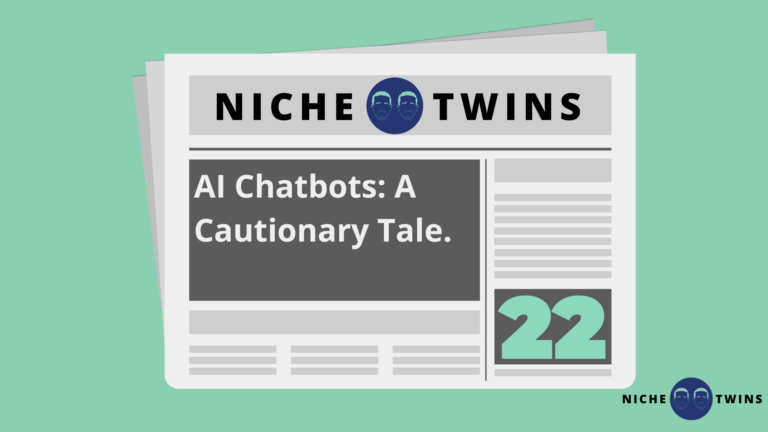Two weeks ago, my July 14th newsletter was a Paul Graham love letter.
I detailed how I’ve been reading his personal essays for the past few months and how I’ve been desperately trying to absorb his writing style.
In the piece, I included 10 “quotes” by Graham on writing.
Saturday, July 15th, was the first official day of a week long family vacation. I was vibing.
It was 7:45 am and I fired off a tweet thread with those same 10 quotes.
Create once, publish everywhere…right?
Within minutes a DM hit my inbox. It was from Paul Graham.
Was it really though? Probably an impersonator account. I quickly navigate to the account. Nope, it’s actually him.
For a split second I thought, “I bet he’s reaching out to let me know these are his favorite quotes too…maybe we’ll grab lunch sometime…maybe he’ll give me a pass into Y Combinator one day…this is awesome”. 🤣
Instead he was reaching out to let me know I had fu*ked up.
And soon his 1.7 million Twitter followers would hear all about it.
Here’s what happened…
Here’s Graham’s initial DM:

At first, I was surprised by how quickly he messaged me given the fact that I didn’t @ or tag him.
Then I realized, he must have an alert set for whenever his name is mentioned. Likely for this exact reason – fighting misinformation.
I immediately knew I had messed up and so I deleted the thread in real time.
A few minutes later, Graham tweeted this out:

He did me a kindness by not mentioning me directly, but remaining anonymous felt fraudulent.
So I said screw it, and added this comment to Graham’s tweet:
Feel I should own the fact that I am the guy Paul is referencing here. 🤦♂️
As some additional context, I’ve been reading (and often rereading) Paul’s essays for the past few months now.
More recently, I started saving some of my favorite quotes of his on the topic of writing.
I had about 6 quotes saved, but my monkey brain told me 10 would be far more “shareable”.
So I headed over to Bard…and did not source check what it spit out to me.
Respect Paul’s work immensely and I feel pretty stupid for the oversight and for misquoting him.
Regrettable and absolutely lazy on my part.
If nothing else, hopefully a helpful reminder to others as these AI chat platforms grow in popularity…
In the end I didn’t kill anyone. And it’s not like the quotes I inaccurately attributed to Graham were malicious or offense.
But I won’t lie, the whole thing left me feeling pretty shitty.
Partly because it was a poor and inaccurate reflection of the quality of my work. And partly because I genuinely admire and respect Graham and it was very likely the only exchange we will ever have.
*My wife was quick to remind me that we would have likely had zero lifetime exchanges had I not f’d up (undoubtedly a better perspective).*
A couple days later, a Senior Product Manager from Google Bard reached out. He was interested in reviewing the exact prompts I used, with the hopes of eliminating related issues in the future.

The power of Twitter man – it never ceases to amaze me.
I titled this week’s newsletter “AI Chatbots: A Cautionary Tale” with equal parts tongue-in-cheek and sincerity.
AI chatbots like OpenAI’s ChatGPT and Google’s Bard remain experimental. Both platforms clearly state on their respective landing pages that they will occasionally get things wrong.
But from my experience and from what I’ve observed, it’s pretty easy to forget that.
Just ask Steven A. Schwartz, the lawyer who admitted in an affidavit earlier this year that he used ChatGPT for his Colombian airline Avianca brief.
The result?
Schwartz submitted 6 judicial decisions that all turned out to be made up.

How did Schwartz attempt to verify the sources of these 6 decisions?
He literally asked the chatbot if it was lying. ChatGPT insisted it was telling the truth.
Hey, no shade here. That’s one step further than I went!
To be clear, I feel strongly these tools can be extremely useful when used with an appropriate level of skepticism and scrutiny.
This experience has been a great reminder for me (and hopefully for you) to ruthlessly fact check and verify sources.
Ok, that’s all for now.
Tonight I celebrate my beautiful wife’s birthday (Happy Birthday Chelsea!!)
Until next week… ✌️
*No, I did not for one second consider referring to Twitter as “X”. Don’t @ me*
-Keith

Niche Twins newsletter sent weekly on Fridays at 8:30 AM ET


